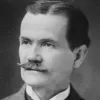Etiquette systems of one kind or another govern all social intercourse, formal and informal, which is why faulty ones are able to do so much damage. A system that denies the innate human need for dignity to specific categories of people, typically the poor and the enslaved, fosters incendiary resentment.
Judith Martin (b. 1938) American author, journalist, etiquette expert [a.k.a. Miss Manners]
Star-Spangled Manners, ch. 1 (2003)
(Source)
Quotations about:
class
Note not all quotations have been tagged, so Search may find additional quotes on this topic.
[Death equalizes the scepter and the spade.]
(Other Authors and Sources)
Latin proverb
Widely used over the centuries in sermons, religious writings, and inscriptions regarding death and the vanity of worldly rank and honors. Citations I found go back at least to the 16th Century, with use peaking, then tailing off in the 19th Century.
While attributed in various places, without citation, to Lucan, Lucian, or Horace, it does not appear to be actually from any of those writers.
Alternate translations / renderings:Death maketh sceptres and mattocks equal, and as soon arresteth he the prince that carrieth the sceptre, as the poor man that diggeth with the mattock.
[tr. Grindal (1564)]Scepter and crown
Must tumble down,
And in the dust be equal made
With the poor crooked scythe and spade.
[tr. Shirley (1654)]Death mingles scepters with spades.
[tr. Henry (1806)]Death is the head of the leveling party.
[tr. Cawdry (1869)]In death there is no difference betwixt the king and the beggar.
[tr. Cawdry (1869)]In death there is no difference made
Between the sceptre and the spade.
[Inverness tombstone of Samuel Urquhart (1700); see Swift, below]In Death, no Difference is made,
Betweene the Sceptre, and the Spade.
[Inverness tombstone of John Cutherbert of Drakes (1711)]Death makes sceptres and hoes equal.
[tr. Aavitsland (2012)]Death makes scepters equal with hoes.
[tr. Stone (2013)]
Variants:Mors dominos servis et sceptra ligonibus æquat,
Dissimiles simili condicione trahens.
[Death comes alike to monarch, lord, and slave,
And levels all distinctions in the grave.]
[Hall (1909), from Colman (c. 1633)]Ah! who, in our degenerate days,
As nature prompts, his offering pays?
Here nature never difference made
Between the sceptre and the spade.
[Swift (1730), regarding the goddess of the sewer, Cloacina]
ORESTES: Ye Gods! There’s no art to tell a decent man,
since generations work haphazardly.
I’ve encountered worthless men, the sons
of noble fathers; good men born from bad;
and I’ve seen hunger in a rich man’s mind,
a poor man’s body housing thoughts sublime.[ὈΡΈΣΤΗΣ: φεῦ:
οὐκ ἔστ᾽ ἀκριβὲς οὐδὲν εἰς εὐανδρίαν:
ἔχουσι γὰρ ταραγμὸν αἱ φύσεις βροτῶν.
ἤδη γὰρ εἶδον ἄνδρα γενναίου πατρὸς
τὸ μηδὲν ὄντα, χρηστά τ᾿ ἐκ κακῶν τέκνα,
λιμόν τ᾿ ἐν ἀνδρὸς πλουσίου φρονήματι,
γνώμην δὲ μεγάλην ἐν πένητι σώματι.]Euripides (485?-406? BC) Greek tragic dramatist
Electra [Ἠλέκτρα], l. 367ff (c. 420 BC) [tr. Wilson (2016)]
(Source)
(Source (Greek)). Alternate translations:There is no certain mark of generous souls:
For in the tempers of mankind prevails
A strange confusion. I have seen the son
Of a great father dwindle into nothing.
And virtuous children spring from wicked Sires;
Among the rich a mean contracted spirit
Have I discover'd, and the poor man's breast
Withi most exalted sentiments inspir'd.
[tr. Wodhull (1809)]Ah! there is no sure mark to recognize a man's worth; for human nature hath in it an element of confusion. For I have seen ere now the son of a noble sire prove himself a worthless knave, and virtuous children sprung from evil parents; likewise dearth in a rich man's spirit, and in a poor man's frame a mighty soul.
[tr. Coleridge (1891)]Alas! there is no sure mark of manliness; for the natures of mortals exhibit a confusion. For already have I seen a man who was naught sprung from a noble sire, and good children [sprung] from bad [fathers[,. and hunger in the spirit of a rich man, and a great mind in a poor body.
[tr. Buckley (1892)]Lo, there is no sure test for manhood’s worth:
For mortal natures are confusion-fraught. --
I have seen ere now a noble father’s son
Proved nothing-worth, seen good sons of ill sires,
Starved leanness in a rich man’s very soul,
And in a poor man’s body a great heart.
[tr. Way (1896)]How dark lies honour hid! And what turmoil
In all things human: sons of mighty men
Fallen to naught, and from ill seed again
Good fruit: yea, famine in the rich man's scroll
Writ deep, and in poor flesh a lordly soul.
[tr. Murray (1905)]Ah! There is no exact way to test a man's worth; for human nature has confusion in it. I have seen before now the son of a noble father worth nothing, and good children from evil parents; famine in a rich man's spirit, and a mighty soul in a poor man's body.
[tr. Coleridge (1938 ed.)]It is impossible to judge a man’s virtue with accuracy. There’s always great confusion in the nature of mortals. I, myself, have seen worthless children born of a virtuous man and from evil parents born brilliant children. I have seen a small, poor mind in a wealthy man and in the soul of a poor man, a great one.
[tr. Theodoridis (2006)]Well, nothing is precise
when it comes to how a man is valued --
men’s natures are confusing. Before this,
I’ve seen a man worth nothing, yet he had
a noble father; I’ve known evil parents
with outstanding children, seen famine
in a rich man’s mind and a great spirit
in a poor man’s body.
[tr. Johnston (2009)]I have known a man of a noble father who turns out
To be nothing while powerful men can rise from the low.
I have seen emptiness in a rich man’s thought
And great judgement in a poor person’s frame.
[tr. @sententiq (2020)]
WENDY. Where do you live?
PETER. Second to the right and then straight on till morning.
WENDY. What a funny address!
PETER. No, it isn’t.
J. M. Barrie (1860-1937) Scottish novelist and dramatist [James Matthew Barrie]
Peter Pan, Act 1 (1904, pub. 1928)
(Source)
In Barrie's novelization, Peter and Wendy, ch. 3 "Come Away, Come Away!" (1911), this is rendered:She asked where he lived.
“Second to the right,” said Peter, “and then straight on till morning.”
“What a funny address!”
Peter had a sinking feeling. For the first time he felt that perhaps it was a funny address.
“No, it isn’t,” he said.
The man who is possessed of wealth, who lolls on his sofa or rolls in his carriage, cannot judge the wants or feelings of the day-laborer.
James Madison (1751-1836) American statesman, political theorist, US President (1809-17)
Comment (1787-06-26), US Constitutional Convention, Philadelphia
(Source)
During debate on the length of terms for US Senators.
As quoted in Robert Yates, Notes of the Secret Debates of the Federal Convention of 1787 . Yates was a delegate from New York to the Constitutional Convention, and later served as state Chief Justice.
The observances of the Church concerning feasts and fasts are tolerably well kept upon the whole, since the rich keep the feasts and the poor the fasts.
Sydney Smith (1771-1845) English clergyman, essayist, wit
(Attributed)
(Source)
In Hesketh Pearson, The Smith of Smiths, ch. 10 (1934).
Necessity’s impartial law
For every rank is still the same,
One lot for high and low to draw:
The urn hath room for every name.
[Aequa lege Necessitas
Sortitur insignes et imos;
Omne capax movet urna nomen.]Horace (65-8 BC) Roman poet, satirist, soldier, politician [Quintus Horatius Flaccus]
Odes [Carmina], Book 3, # 1, l. 14ff (3/1/14-16) (23 BC) [tr. Gladstone (1894)]
(Source)
(Source (Latin)). Alternate translations:Necessity in a vast Pot
Shuffling the names of great and small,
Draws every one's impartial lot.
[tr. Fanshaw; ed. Brome (1666)]Yet equal Death doth strike at all,
The haughty Great, and humble Small,
She strikes with an impartial Hand;
She shakes the vast capacious Urn,
And each Man's Lot must take his turn;
Thro every glass she presses equal Sand.
[tr. Creech (1684)]What are great or small?
Death takes the mean man with the proud;
The fatal urn has room for all.
[tr. Conington (1872)]Fate, by the impartial law of nature, is allotted both to the conspicuous and the obscure; the capacious urn keeps every name in motion.
[tr. Smart/Buckley (1853)]Still Fate doth grimly stand.
And with impartial hand
The lots of lofty and of lowly draws
From that capacious urn,
Whence every name that lives is shaken in its turn.
[tr. Martin (1864)]Necessity with equal law assorts the varying lots;
Though this may bear the lofty name and that may bear the low,
Each in her ample urn she shakes,
And casts the die for all.
[tr. Bulwer-Lytton (1870)]But all with equal law stern Necessity
Allots their place — the high, the lowest,
Ev'ry man's name in that urn is shaken.
[tr. Phelps (1897)]but Doom, with equal law.
Wins high and humblest,
The ample urn shakes every name.
[tr. Garnsey (1907)]Alike for high and low Death votes.
His mighty urn will throw
Each name or soon or late.
[tr. Marshall (1908)]Yet with impartial justice Necessity allots the fates of high and low alike. The ample urn keeps tossing every name.
[tr. Bennett (Loeb) (1912)]All the same,
Ever and aye Necessity
Dooms high and low impartially;
The vasty urn shakes every name.
[tr. Mills (1924)]Yet still Necessity, the same just dealer,
Allots to high and low
Their fates: her large urn shuffles every name.
[tr. Michie (1963)]Necessity makes the choice.
No matter what your station or situation,
Your name is shake in the urn.
[tr. Ferry (1997)]Necessity allots the destinies of illustrious and lowly alike. The capacious urn churns every name.
[tr. Alexander (1999)]But Necessity sorts
the fates of high and low with equal
justice: the roomy urn holds every name.
[tr. Kline (2015)]
The King’s cheese is half wasted in parings: But no matter, ’tis made of the peoples milk.
Benjamin Franklin (1706-1790) American statesman, scientist, philosopher, aphorist
Poor Richard (1735 ed.)
(Source)
Nothing more clearly shows how little God esteems his gift to men of wealth, money, position and other worldly goods, than the way he distributes these, and the sort of men who are most amply provided with them.
[Rien ne fait mieux comprendre le peu de chose que Dieu croit donner aux hommes, en leur abandonnant les richesses, l’argent, les grands établissements et les autres biens, que la dispensation qu’il en fait, et le genre d’hommes qui en sont le mieux pourvus.]
Jean de La Bruyère (1645-1696) French essayist, moralist
The Characters [Les Caractères], ch. 6 “Of Gifts of Fortune [Des Biens de Fortune],” § 24 (6.24) (1688) [tr. Stewart (1970)]
(Source)
See Alexander Pope.
(Source (French)). Alternate translations:Nothing makes us better comprehend what little things God thinks he bestows on Mankind, when he suffers 'em to abound in Riches, Gold, Settlements, Stations, and other advantages, than the dispensations he makes of them, and the sort of men who are best provided.
[Bullord ed. (1696)]Nothing makes us better comprehend what little things God thinks he bestows on Mankind, in suffering 'em to abound in Riches, Mony, great Preferments, and other Advantages, than the Distribution he makes of 'em, and the sort of Men who are best provided.
[Curll ed. (1713)]Nothing makes us better understand what trifling things Providence thinks He bestows on men in granting them wealth, money, dignities, and other advantages, than the manner in which they are distributed and the kind of men who have the largest share.
[tr. Van Laun (1885)]
In truth, poverty is an anomaly to rich people. It is very difficult to make out why people who want dinner do not ring the bell.
Walter Bagehot (1826-1877) British businessman, essayist, journalist
“The Waverley Novels,” National Review (1858-04)
(Source)
A review of Sir Walter Scott's very popular and lengthy book series of that name, which includes his (today) most famous, Ivanhoe.
I am, somehow, less interested in the weight and convolutions of Einstein’s brain than in the near certainty that people of equal talent have lived and died in cotton fields and sweatshops.
Stephen Jay Gould (1941-2002) American paleontologist, geologist, biologist
The Panda’s Thumb, Part 4, ch. 13 “Wide Hats and Narrow Minds” (1980)
(Source)
It is wrong to wear diamonds before dusk, except on one’s marriage rings. Before, after, and during breakfast, luncheon and dinner, it is vulgar to wear a mixture of colored precious stones. It is always a comfort to know that so many things one can’t afford to do anyway are vulgar.
To show lack of consideration for those who in any capacity serve us — whether in restaurants, hotels, or stores, or in public places anywhere — is always an evidence of ill-breeding as well as inexcusable selfishness. It is only those who are afraid that someone may encroach upon their exceedingly insecure dignity who show neither courtesy nor consideration except to those whom they think it would be to their advantage to please.
Emily Post (1872-1960) American author, columnist [née Price]
Etiquette: The Blue Book of Social Usage, ch. 8 “Entertaining at a Restaurant” (1922; 1955 10th ed.)
(Source)
See also Paul Eldridge.
The Lord, the Slave, the Peasant, and the King
Unlike in life, in death the self-same thing.[Mors dominos servis et sceptra ligonibus æquat,
Dissimiles simili conditione trahens.]Walter Colman (1600-1645) English Franciscan friar
“La Danse Machabre or Death’s Duell,” st. 262 (c. 1633)
(Source)
In Hoyt's New Cyclopedia of Practical Quotations (1922), this is translated:Death levels master and slave, the sceptre and the law,
and makes the unlike like.
To laugh sturdily and often, and to wear a long belt, are not incongruous with sanctity. God’s image is in every man, high or low — a road puddle holds the moon as well as the sea.
Austin O'Malley (1858-1932) American ophthalmologist, professor of literature, aphorist
Keystones of Thought (1914)
(Source)
At court, far from regarding ambition as a sin, people regard it as a virtue, or if it passes for a vice, then it is regarded as the vice of great souls, and the vices of great souls are preferred to the virtues of the simple and the small.
[A la cour, bien loin de faire un crime de l’ambition, on s’en fait une vertue; ou si elle y passe pour un vice, du reste on la regarde comme le vice des grandes âmes, et l’on aime mieux les vices des grandes âmes que les vertus des simples et des petits.]
Louis Bourdaloue (1632-1704) French Jesuit priest, preacher
Quoted in Bernart Gorethuysen, The Bourgeois: Catholicism vs. Capitalism in Eighteenth-Century France (1927) [tr. Ilford (1968)]
(Source)
In short, the contradiction in the old defense of class stratification is that it defends leisure for the leisure class, but not for the underclass. With reference to the underclass, leisure is said to destroy the incentive to work, leads to slothfulness and self-indulgence, and retards cognitive and moral development. When applied to the leisure class, the concept evokes an image of Plato and Aristotle, whose leisure was based on slave labor, creating the intellectual foundations of Western civilization; or patrician slave-owners like Washington and Jefferson laying the foundations of American civilization; or creative aristocrats like Count Leo Tolstoy or Bertrand, Earl Russell; or, even closer to home, of our own sons and daughters (or of ourselves, when we were young adults) being freed from the stultifying tasks of earning a living until well into our adult years so that we could study in expensive universities to gain specialized knowledge and skills.
James Gilligan (b. c. 1936) American psychiatrist and author
Preventing Violence, ch. 5 (2001)
(Source)
Some people think they are worth a lot of money just because they have it.
Fannie Hurst (1889-1968) American novelist
(Attributed)
This is sometimes cited to an unknown issue of the Jewish Telegraphic Agency in 1952, but a search of the site does not turn it up.
Envy iz sutch a constant companyun, that if we find no one abuv us to envy, we will envy thoze below us.
[Envy is such a constant companion, that if we find no one above us to envy, we will envy those below us.]
Josh Billings (1818-1885) American humorist, aphorist [pseud. of Henry Wheeler Shaw]
Everybody’s Friend, Or; Josh Billing’s Encyclopedia and Proverbial Philosophy of Wit and Humor, “Plum Pits” (1874)
(Source)
Imagine my horror at discovering that the United States is more calcified by class than Britain, especially toward the top. The big difference is that most of the people on the highest rung in America are in denial about their privilege. The American myth of meritocracy allows them to attribute their position to their brilliance and diligence, rather than to luck or a rigged system. At least posh people in England have the decency to feel guilty.
Richard V. Reeves (b. 1969) British historian, journalist, political theorist
“Stop Pretending You’re Not Rich,” New York Times (10 Jun 2017)
(Source)
There was this about vampires: they could never look scruffy. Instead, they were … what was the word … deshabille. It meant untidy, but with bags and bags of style.
Justice is indiscriminately due to all, without regard to numbers, wealth, or rank.
John Jay (1745-1829) American statesman, diplomat, abolitionist, politician, Chief Justice (1789-1795)
Georgia v. Brailsford, 3 US 1 (1794) [unanimous opinion]
(Source)
I do not see in religion the mystery of the incarnation, but the mystery of the social order; religion attaches to heaven an idea of equality that stops the rich from being massacred by the poor.
[Quant à moi, je ne vois pas dans la religion le mystère de l’incarnation, mais le mystère de l’ordre social; elle rattache au ciel une idée d’égalité qui empêche que le riche ne soit massacré par le pauvre.]
Napoleon Bonaparte (1769-1821) French emperor, military leader
Statement (4 Mar 1806)
(Source)
Quoted in Opinions de Napoléon sur divers sujets de politique et d'administration, recueillies par un membre de son conseil d'état (1833).
Do not only look
For gentlefolk in castles: everywhere,
In humble dwellings and in haylofts, too,
The hearts of men are often kind and true.[Che non pur per cittadi e per castella,
Ma per tuguri ancora e per fenili
Spesso si trovan gli uomini gentili.]Ludovico Ariosto (1474-1533) Italian poet
Orlando Furioso, Canto 14, st. 62 (1532) [tr. Reynolds (1973)]
(Source)
Alt. trans.: "For not alone dwells Hospitality / In court and city; but ofttimes we find / In loft and cottage men of gentle kind." [tr. Rose (1831)]
So long as there shall exist, by virtue of law and custom, decrees of damnation pronounced by society, artificially creating hells amid the civilization of earth, and adding the element of human fate to divine destiny; so long as the three great problems of the century — the degradation of man through pauperism, the corruption of woman through hunger, the crippling of children through lack of light — are unsolved; so long as social asphyxia is possible in any part of the world; — in other words, and with a still wider significance, so long as ignorance and poverty exist on earth, books of the nature of Les Misérables cannot fail to be of use.
[Tant qu’il existera, par le fait des lois et des mœurs, une damnation sociale créant artificiellement, en pleine civilisation, des enfers, et compliquant d’une fatalité humaine la destinée qui est divine; tant que les trois problèmes du siècle, la dégradation de l’homme par le prolétariat, la déchéance de la femme par la faim, l’atrophie de l’enfant par la nuit, ne seront pas résolus; tant que, dans de certaines régions, l’asphyxie sociale sera possible; en d’autres termes, et à un point de vue plus étendu encore, tant qu’il y aura sur la terre ignorance et misère, des livres de la nature de celui-ci pourront ne pas être inutiles.]
Victor Hugo (1802-1885) French writer
Les Misérables, Preface (1862) [tr. Hapgood (1887)]
(Source)
(Source (French)). Alternate translations:So long as there shall exist, by reason of law and custom, a social condemnation, which, in the face of civilization, artificially creates hells on earth, and complicates a destiny that is divine, with human fatality; so long as the three problems of the age -- the degradation of man by poverty, the ruin of woman by starvation, and the dwarfing of childhood by physical and spiritual night -- are not solved; so long as, in certain regions, social asphyxia shall be possible ; in other words, and from a yet more extended point of view, so long as ignorance and misery remain on earth, books like this cannot be useless.
[tr. Wilbour (1862)]As long as there shall exist, as a consequence of laws and customs, a social damnation artificially creating hells in the midst of civilization, and complicating the destiny which is divine with a fatality which is human; as long as the three problems of the age -- the degradation of man by the proletariat, the ruin of woman by hunger, the atrophy of the child by the night—are not solved; as long as in certain regions social asphyxia shall be possible; in other terms, and from a still more extended point of view, as long as there shall be on the earth ignorance and wretchedness, books of the nature of this one cannot be useless.
[tr. Wraxall (1862)]While through the working of laws and customs there continues to exist a condition of social condemnation which artificially creates a human hell within civilization, and complicates with human fatality a destiny that is divine; while the three great problems of this century, the degradation of man in the proletariat, the subjection of women through hunger, the atrophy of the child by darkness, continue unresolved; while in some regions social asphyxia remains possible; in other words, and in still wider terms, while ignorance and poverty persist on earth, books such as this cannot fail to be of value.
[tr. Denny (1976)]So long as there shall exist, by reason of law and custom, a social condemnation which, in the midst of civilization, artificially creates a hell on earth, and complicates with human fatality a destiny that is divine; so long as the three problems of the century -- the degradation of man by the exploitation of his labor, the ruin of woman by starvation, and the atrophy of childhood by physical and spiritual night -- are not solved; so long as, in certain regions, social asphyxia shall be possible; in other words, and, from a still broader point of view, so long as ignorance and misery remain on earth, there should be a need for books such as this.
[tr. Wilbour/Fahnestock/MacAfee (1987)]As long as through the workings of laws and customs there exists a. damnation-by-society artificially creating hells int he very midst of civilization and complicating destiny, which is divine, with a man-made fate; as long as the three problems of the age are not resolved: the debasement of of men through proletarianization, the moral degradation of women through hunger, and the blighting of children by keeping them in darkness; as long as in certain strata social suffocation is possible; in other words and from an even broader perspective, as long as there are ignorance and poverty on earth, books of this kind may serve some purpose.
[tr. Donougher (2013)]
It is a trite yet urgently true observation that if America is to remain a first-class nation, it cannot have second-class citizens.
Martin Luther King, Jr. (1929-1968) American clergyman, civil rights leader, social activist, preacher
“The Negro and the American Dream,” speech, North Carolina NAACP, Charlotte (1960-09-25)
(Source)
King used this line in several of his speeches at the time.
It was crowded in the Curry Gardens on the corner of God Street and Blood Alley, but only with the cream of society — at least, with those people who are found floating on the top and who, therefore, it’s wisest to call the cream.
Your Honor, years ago I recognized my kinship with all living beings, and I made up my mind then that I was not one bit better than the meanest on earth. I said then, and I say now, that while there is a lower class, I am in it; and while there is a criminal element, I am of it; and while there is a soul in prison, I am not free.
Eugene V. Debs (1855-1926) American union leader, activist, socialist, politician
Statement to the Court (1918-09-18)
(Source)
On being convicted of sedition for urging resistance to the draft. Often paraphrased:As long as there is a lower class, I am in it. As long as there is a criminal element, I am of it. As long as there is a soul in prison, I am not free.
The Martini is to middle- and upper-class American society what peyote is to the Yaqui Indians: a sacred rite that affirms tribal identity, encourages fanciful thought and — let’s be honest here — delivers a whoppingly nice high.
Barnaby Conrad III (b. 1952) American author, artist, editor
“Martini Madness,” Cigar Aficionado (Spring 1996)
(Source)
Again, it is proper to the magnanimous person to ask for nothing, or hardly anything, but to help eagerly. When he meets people with good fortune or a reputation for worth, he displays his greatness, since superiority over them is difficult and impressive, and there is nothing ignoble in trying to be impressive with them. But when he meets ordinary people, he is moderate, since superiority over them is easy, and an attempt to be impressive among inferiors is as vulgar as a display of strength against the weak.
[μεγαλοψύχου δὲ καὶ τὸ μηδενὸς δεῖσθαι ἢ μόλις, ὑπηρετεῖν δὲ προθύμως, καὶ πρὸς μὲν τοὺς ἐν ἀξιώματι καὶ εὐτυχίαις μέγαν εἶναι, πρὸς δὲ τοὺς μέσους μέτριον: τῶν μὲν γὰρ ὑπερέχειν χαλεπὸν καὶ σεμνόν, τῶν δὲ ῥᾴδιον, καὶ ἐπ᾽ ἐκείνοις μὲν σεμνύνεσθαι οὐκ ἀγεννές, ἐν δὲ τοῖς ταπεινοῖς φορτικόν, ὥσπερ εἰς τοὺς ἀσθενεῖς ἰσχυρίζεσθαι.]
Aristotle (384-322 BC) Greek philosopher
Nicomachean Ethics [Ἠθικὰ Νικομάχεια], Book 4, ch. 3 (4.3.26) / 1124b.18 (c. 325 BC) [tr. Irwin (1999)]
(Source)
The core word Aristotle is using is μεγαλοψυχία (translated variously as high-mindedness, great-mindedness, pride, great-soulness, magnanimity). (Source (Greek)). Alternate translations:Further, it is characteristic of the Great-minded man to ask favours not at all, or very reluctantly, but to do a service very readily; and to bear himself loftily towards the great or fortunate, but towards people of middle station affably; because to be above the former is difficult and so a grand thing, but to be above the latter is easy; and to be high and mighty towards the former is not ignoble, but to do it towards those of humble station would be low and vulgar; it would be like parading strength against the weak.
[tr. Chase (1847)]It would seem, too, that the high-minded man asks favours of no one, or, at any rate, asks them with the greatest reluctance, but that he is always eager to do good offices to others; and that towards those in high position and prosperity he bears himself with pride, but towards ordinary men with moderation; for in the former case it is difficult to show superiority, and to do so is a lordly mater; whereas in the latter case it is easy. To be haughty among the great is no proof of bad breeding, but haughtiness among the lowly is as base-born a thing as it is to make trial of great strength upon the weak.
[tr. Williams (1869)]It is characteristic too of the high-minded man that he never, or hardly ever, asks a favor, that he is ready to do anybody a service, and that, although his bearing is stately towards person of dignity and affluence, it is unassuming toward the middle class; for while it is a difficult and dignified thing to be superior to the former, it is easy enough to be superior to the latter, and while a dignified demeanour in dealing with the former is a mark of nobility, it is a mark of vulgarity ind ealing with the latter, as it like a display of physical strength at the expense of an invalid.
[tr. Welldon (1892), ch. 8]It is characteristic of the high-minded man, again, never or reluctantly to ask favours, but to be ready to confer them, and to be lofty in his behaviour to those who are high in station and favoured by fortune, but affable to those of the middle ranks; for it is a difficult thing and a dignified thing to assert superiority over the former, but easy to assert it over the latter. A haughty demeanour in dealing with the great is quite consistent with good breeding, but in dealing with those of low estate is brutal, like showing off one’s strength upon a cripple.
[tr. Peters (1893)]It is a mark of the proud man also to ask for nothing or scarcely anything, but to give help readily, and to be dignified towards people who enjoy high position and good fortune, but unassuming towards those of the middle class; for it is a difficult and lofty thing to be superior to the former, but easy to be so to the latter, and a lofty bearing over the former is no mark of ill-breeding, but among humble people it is as vulgar as a display of strength against the weak.
[tr. Ross (1908)]It is also characteristic of the great-souled man never to ask help from others, or only with reluctance, but to render aid willingly; and to be haughty towards men of position and fortune, but courteous towards those of moderate station, because it is difficult and distinguished to be superior to the great, but easy to outdo the lowly, and to adopt a high manner with the former is not ill-bred, but it is vulgar to lord it over humble people: it is like putting forth one's strength against the weak.
[tr. Rackham (1934)]It is also characteristic of a great-souled person to ask for nothing or hardly anything but to offer his services eagerly, and to exhibit his greatness to those with a reputation for great worth or those who are enjoying good luck, but to moderate his greatness to those in the middle. For it is a difficult and a dignified thing to show oneself superior to the former, but an easy one to do so to the latter, and, while adopting a dignified manner toward the former is not ill-bred, to do so toward humble people is vulgar, like displaying strength against the weak.
[tr. Reeve (1948)]It is the mark of a high-minded man, too, never, or hardly ever, to ask for help, but to be of help to others readily, and to be dignified with men of high position or of good fortune, but unassuming with those of middle class, for it is difficult and impressive to be superior to the former, but easy to be so to the latter; and whereas being impressive to the former is not a mark of a lowly man, being so to the humble is crude -- it is like using physical force against the physically weak.
[tr. Apostle (1975)]Another mark of the magnanimous man is that he never, or only reluctantly, makes a request, whereas he is eager to help others. He his haughty toward those who are influential and successful, but moderate toward those who have an intermediate position in society, because in the former case to be superior is difficult and impressive, but in the latter it is easy' and to create an impression at the expense of the former is not ill-bred, but to do so among the humble is vulgar.
[tr. Thomson/Tredennick (1976)]It is also characteristic of a great-souled person to ask for nothing, or almost nothing, but to help others readily; and to be dignified in his behavior towards people of distinction or the well-off, but unassuming toward people at the middle level. Superiority over the first group is difficult and impressive, but over the second it is easy, and attempting to impress the first group is not ill-bred, while in the case of humble people it is vulgar, like a show of strength against the weak.
[tr. Crisp (2000)]It belongs to the great-souled also to need nothing, or scarcely anything, but to be eager to be of service, and to be great in the presence of people of worth and good fortune, but measured toward those of a middling rank. For it is a difficult and august thing to be superior among the fortunate, but easy to be that way among the middling sorts; and to exalt oneself among the former is not a lowborn thing, but to do so among the latter is crude, just as is using one's strength against the weak.
[tr. Bartlett/Collins (2011)]
Sometimes paraphrased:It is not ill-bred to adopt a high manner with the great and the powerful, but it is vulgar to lord it over humble people.
“I hope that you did not give him anything, Mr Sanderson!”
“Of course I did, ma’am.”
“But he would only spend it on drink! You know what the working classes are!”
“Indeed, ma’am, and why should he not spend it on drink? Would you deprive the poor, whose lives are bad and miserable and comfortless enough, of the solace of a little relief from grinding poverty? A sordid, sodden relief perhaps, but would you be so heartless as to deny the poor even that pleasure in which all of us indulge at your generous expense?”
As you grow older, you’ll see white men cheat black men every day of your life, but let me tell you something and don’t you forget it — whenever a white man does that to a black man, no matter who he is, how rich he is, or how fine a family he comes from, that white man is trash.
I asked a man in prison once how he happened to be there and he said he had stolen a pair of shoes. I told him if he had stolen a railroad he would be a United States Senator.
KING ARTHUR: Shut up!
DENNIS: Oh, now we see the violence inherent in the system. Come and see the violence inherent in the system! Help! Help! I’m being repressed!
KING ARTHUR: Bloody peasant!
DENNIS: Oh, what a giveaway! Did you hear that? Did you hear that, eh? That’s what I’m on about! Did you see him repressing me? You saw him, didn’t you?
The doctor asserted, “Sure religion is a fine influence — got to have it to keep the lower classes in order — fact, it’s the only thing that appeals to a lot of these fellows and makes ’em respect the rights of property. And I guess this theology is O.K.; lot of wise old coots figured it out, and they knew more about it than we do.” He believed in the Christian religion, and never thought about it; he believed in the church, and seldom went near it; he was shocked by Carol’s lack of faith, and wasn’t quite sure what was the nature of the faith that she lacked.
Money couldn’t buy friends, but you got a better class of enemy.
Terence Alan "Spike" Milligan (1918-2002) Anglo-Irish comedian, writer, actor
Puckoon, ch. 6 [Mrs. Doonan] (1963)
(Source)
The phrase, usually in the present tense, became a popular one of his, as in Norma Farnes, Memories of Milligan, "Spike on Spike" (2011): "Money can't buy you friends, but it does get you a better class of enemy," or the variant "Money can't buy you friends, but you get a better class of enemy."
At the foundation of our civil liberty lies the principle which denies to government officials an exceptional position before the law and which subjects them to the same rules of conduct that are commands to the citizen.
Great ideas do not burst upon the world unannounced. They are reached by a gradual development over a length of time usually proportionate to their importance. This is especially true of the principles laid down in the Declaration of Independence. Three very definite propositions were set out in its preamble regarding the nature of mankind and therefore of government. These were the doctrine that all men are created equal, that they are endowed with certain inalienable rights, and that therefore the source of the just powers of government must be derived from the consent of the governed. If no one is to be accounted as born into a superior station, if there is to be no ruling class, and if all possess rights which can neither be bartered away nor taken from them by any earthly power, it follows as a matter of course that the practical authority of the Government has to rest on the consent of the governed. While these principles were not altogether new in political action, and were very far from new in political speculation, they had never been assembled before and declared in such a combination.
Calvin Coolidge (1872-1933) American lawyer, politician, US President (1925-29)
“Speech on the Occasion of the 150th Anniversary of the Declaration of Independence” (5 Jul 1926)
(Source)
America’s greatest enemy is not from without, but from within, and that enemy is hate: hatred of races, peoples, classes and religions. If America ever dies, it will be not through conquest but suicide.
It is the wretchedness of being rich that you have to live with rich people.
Logan Pearsall Smith (1865-1946) American-English essayist, editor, anthologist
Afterthoughts, ch. 4 “In the World” (1931)
(Source)
Never trust a country where the rich live behind high walls and tinted windows. That is a place that is not prospering as one country. That is a place where the rich not only say, “I don’t want you to see how I live,” but “I don’t want to see how you live.”
A new church […] a church which will declare that the difference in the death rate between the classes and the masses is evidence of murder done for money.
Henry Demarest Lloyd (1847-1903) American political activist and journalist
Man, the Social Creator, ch. 5 (1906)
(Source)
Indeed, I know of no country where the love of money occupies as great a place in the hearts of men, or where people are more deeply contemptuous of the theory of permanent equality of wealth.
It seems to me that the distinctions separating the social classes are false; in the last analysis they rest on force.
Albert Einstein (1879-1955) German-American physicist
“What I Believe,” Forum and Century (Oct 1930)
(Source)
This phrase is not found in the parallel "The World As I See It [Mein Weltbild]" the next year.
Society is composed of two great classes — those who have more dinners than appetite, and those who have more appetite than dinners.
[La Société est composée de deux grandes classes : ceux qui ont plus de dîners que d’appétit, et ceux qui ont plus d’appétit que de dîners.]
Nicolas Chamfort (1741-1794) French writer, epigrammist (b. Nicolas-Sébastien Roch)
Products of Perfected Civilization [Produits de la Civilisation Perfectionée], Part 1 “Maxims and Thoughts [Maximes et Pensées],” ch. 3, ¶ 194 (1795) [tr. Hutchinson (1902)]
(Source)
The same translation is used by Merwin (1969)(Source (French)). Alternate translations:Society is made up of two large divisions: those who have more dinners than appetite, and those who have more appetite than dinners.
[tr. Mathers (1926)]Society is made up of two large groups: people who have more food than appetite, and people who have more appetite than food.
[tr. Siniscalchi (1994)]Society can be divided into two main categories: people who have more appetite than dinners and those who have more dinners than appetite.
[tr. Parmée (2003), ¶ 145]
Moralists tell you of the evils of wealth and station, and the happiness of poverty. I have been very poor the greatest part of my life, and have borne it as well, I believe, as most people, but I can safely say that I have been happier every guinea I have gained.
Sydney Smith (1771-1845) English clergyman, essayist, wit
Memoir of the Reverend Sydney Smith, by His Daughter, Lady Holland, Vol. 1, ch. 9 (1855)
(Source)
To suppose, as we all suppose, that we could be rich and not behave as the rich behave, is like supposing that we could drink all day and keep absolutely sober.
Logan Pearsall Smith (1865-1946) American-English essayist, editor, anthologist
Afterthoughts, ch. 4 “In the World” (1931)
(Source)
Being powerful is like being a lady. If you have to tell people you are, you aren’t.
ULYSSES: O, when degree is shaked,
Which is the ladder of all high designs,
The enterprise is sick. How could communities,
Degrees in schools and brotherhoods in cities,
Peaceful commerce from dividable shores,
The primogeneity and due of birth,
Prerogative of age, crowns, scepters, laurels,
But by degree stand in authentic place?
Take but degree away, untune that string,
And hark what discord follows.William Shakespeare (1564-1616) English dramatist and poet
Troilus and Cressida, Act 1, sc. 3, l. 105ff (1.3.105-114) (1602)
(Source)





























































